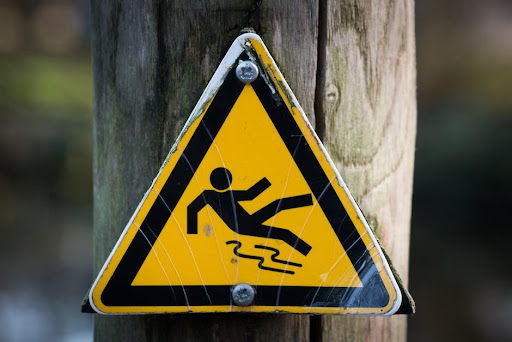Many would agree that rehab from substance abuse and addiction is a step in the right direction. But while there are a plethora of benefits to rehab and sobriety, people still wonder why do addicts relapse when things are good.
The road to recovery is not an easy one, and relapsing is not uncommon. An often-cited study from the Journal of American Medical Association shows that there is a 40 to 60% relapse rate for all substance abuse disorders.
Although there is truth and science to back this up, other factors like stage of disease and drug in use lead relapse rates to vary. Therefore, these drug addiction relapse rates are an invalid predictor of a person’s long-term recovery.
But because substance-related disorders are chronic illnesses, there is always a potential for relapse, no matter how far you are on the road to recovery.
The key takeaway from this article is that changing your ways is an essential step for rehab. With these reasons for relapse listed, people struggling with a substance abuse disorder know what to avoid, from triggers to attitudes.
Your support system can also note the things on this list so that they know what to look out for.
Why do addicts relapse?
The following are the reasons for addiction relapse:
1. Stress
Everyone undergoes stress. And everyone has their own ways of coping with stress. Usually, it’s with alcohol and drugs.
But once you enter a rehab facility, these are obviously not options anymore. So, you’ll have to find other means to deal with increasing stress levels that won’t make you grab the substance of choice.
This is much easier for patients residing in rehab facilities. On the other hand, people fresh out of rehab or outpatients may find it more difficult to stay away from drugs and alcohol when stressed.
So, you’ll have to put in more effort in staying sober even when you’re under a lot of pressure.
2. Withdrawal
Withdrawal is one of the top reasons why addicts relapse. As a matter of fact, the first week of stopping substance intake is when many individuals relapse because they want to avoid withdrawal symptoms.
People with a substance problem will experience different levels of withdrawal symptoms once they stop using the substance of choice. Generally, the signs and their degrees depend on the:
- Substance type
- Quantity of use
- Frequency of use
- Duration of use.
With physiological effects like hot and cold sweats, nausea, restlessness, vomiting, insomnia, diarrhea, and muscle pains, it’s understandable why people would want to avoid them. In some extreme cases, withdrawals can lead to seizures or even death.
However, intaking substances to do so is detrimental to their recovery progress. Therefore, medical experts highly recommend that when individuals stop using drugs or alcohol, they are in a professional center where they can go through medical detox safely.

3. Challenging and negative emotions
Drugs can have an intense (and often euphoric) effect on one’s feelings, which is mainly why people take them in the first place. Most of the time, people using drugs find it difficult to seek help. And even if they do, they still have emotional struggles.
The recovery process takes a toll on a person emotionally. Withdrawing is grueling. Connecting with people is not easy. Reconnecting with friends and family is draining.
And when people recovering from addiction are overwhelmed by intense emotions, they circle back to number one– stress. To keep them from being consumed by these feelings, they turn back to using substances.
4. Being in an environment connected to their addiction
People associated with your addictive behavior could potentially be triggers for relapse. Even if they don’t partake anymore, their presence could still affect you. Or they could be a reason why you started using in the first place, like an abusive parent.
On the same note, being in an environment that reminds you of your addiction can be triggering. So, being in a place you frequented to drink or smoke could tick a part of your brain and tell you that you should do those things again here.
Another powerful trigger is the substance. Even just knowing it’s near you could send you to relapse.
When you find yourself in a triggering situation, it’s vital to have effective ways to handle your thoughts and emotions. For example, a group of friends invites you to a night out. It would be wise to have a specific response ready or a healthy activity to do instead, like exercising.

5. Overconfidence
It’s good to believe in the program and believe in yourself but overdoing it is detrimental to your progress and recovery.
Some people who have experienced true happiness in sobriety tend to be overconfident, saying that they will never even look at a drink or drug ever again. So, they put themselves in risky situations to prove that they can stay sober.
But you should instill in your mind that even the slightest slip-up, the smallest trigger, can lead you to relapse. Never stray away from treatment recommendations and engage in activities related to recovery. Don’t risk your recovery and sobriety just to show how “strong” you are.
How do you deal with relapse?

Now that you know why addicts relapse, it’s important to understand how to deal with your tendencies to relapse. No matter how long you’ve stayed sober or how well you’re doing with the program, there will always be the risk of relapsing. But that doesn’t mean you’ve failed. Addiction recovery is an ongoing journey where you’ll meet all kinds of hiccups and triumphs.
If you do relapse, here are a few things you can do to continue on your road to recovery:
- Seek out support. Go to a friend or family member to keep you grounded. Surround yourself with positivity and love.
- Go to self-help groups. Self-help groups, like Alcoholics Anonymous (AA), are full of people who understand what you’re going through. It’s a non-judgemental place where people with similar stories listen and help each other.
- Create a prevention plan. After experiencing a relapse, you can take preventive measures to ensure that it doesn’t happen again. The plan can include your main triggers, how to avoid or deal with them, and a list of people and support groups you can turn to.
- Use it to make you stronger. Like what we said, relapsing is not failing. So, instead of succumbing to your negative emotions, use that experience as a lesson and a reason to be better, stronger.
Do you need help or know someone battling substance abuse? Are they seeking a place for rehab and recovery in Phoenix, AZ? Know who we help here at Buena Vista Health and Recovery Center turn your life around for the better.
Our outpatient treatment recovery in AZ includes an introduction to the 12 steps, weekly therapy sessions, trauma workshops, medical and psychiatric care, and relapse prevention education.
You can contact us at (800) 922-0095, or go to any of our locations:
CAVE CREEK
29858 N. Tatum Blvd.
Cave Creek, AZ 85331
CHANDLER
3033 South Arizona Avenue
Chandler, Arizona 85248
TUCSON
5151 East Pima Road
Tucson, Arizona 85712





